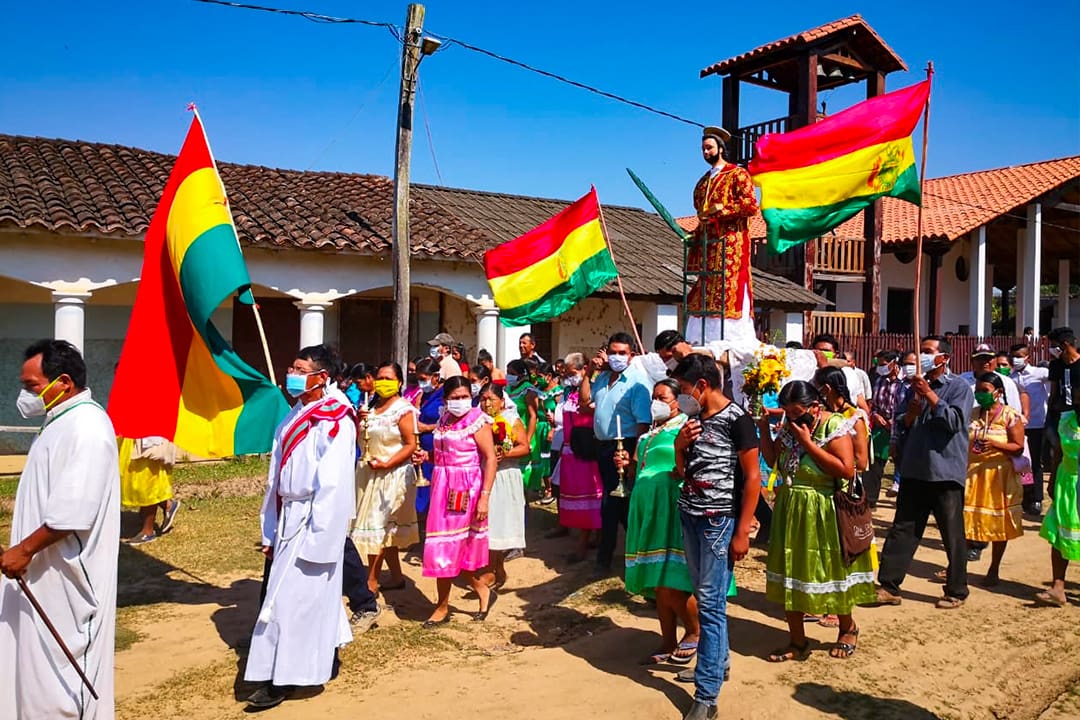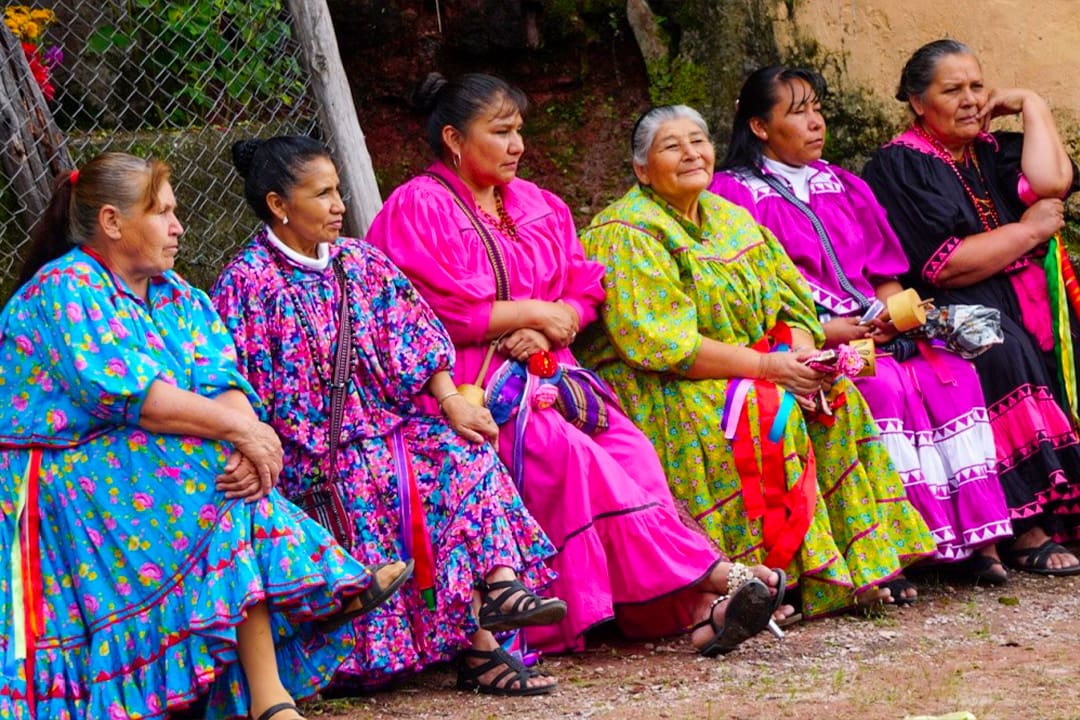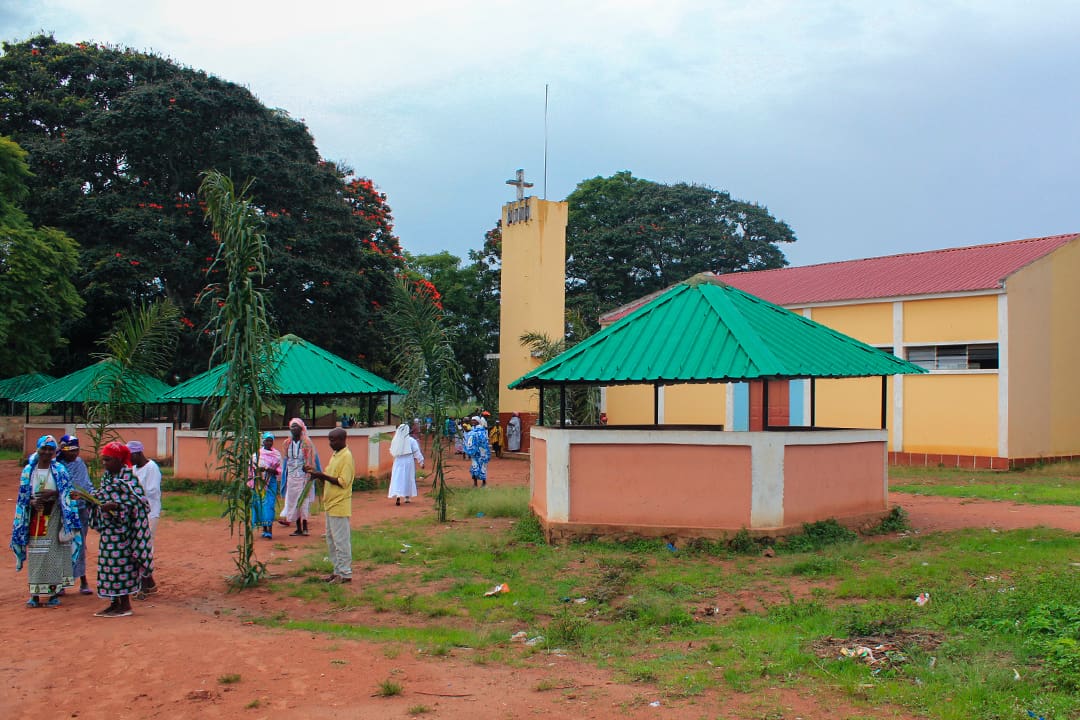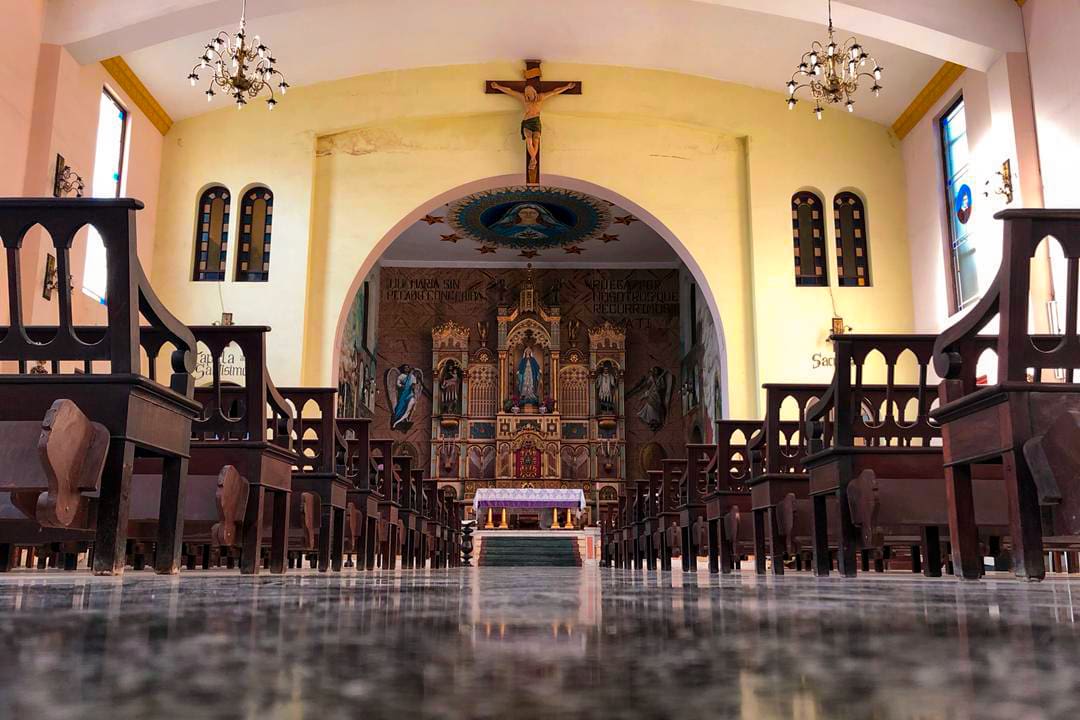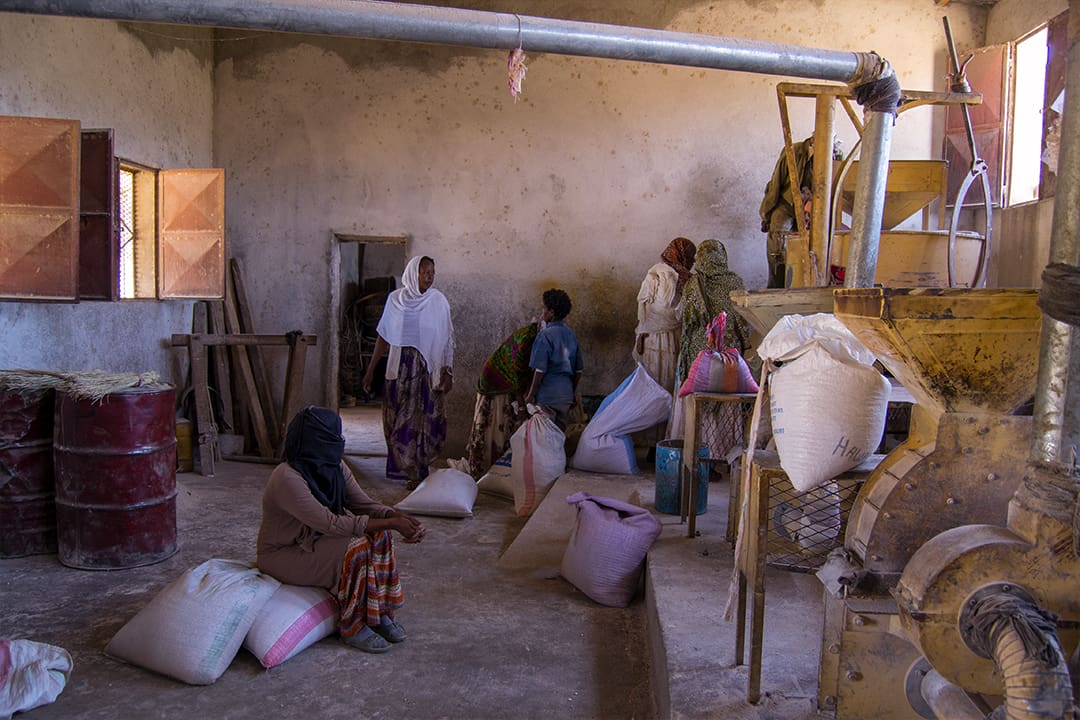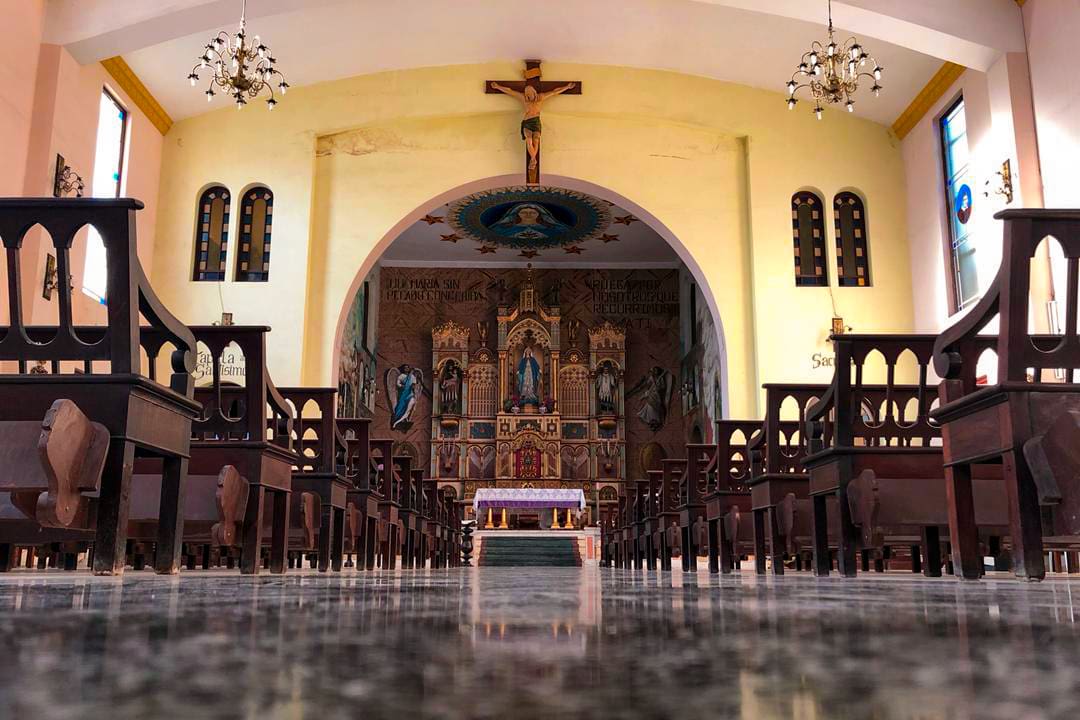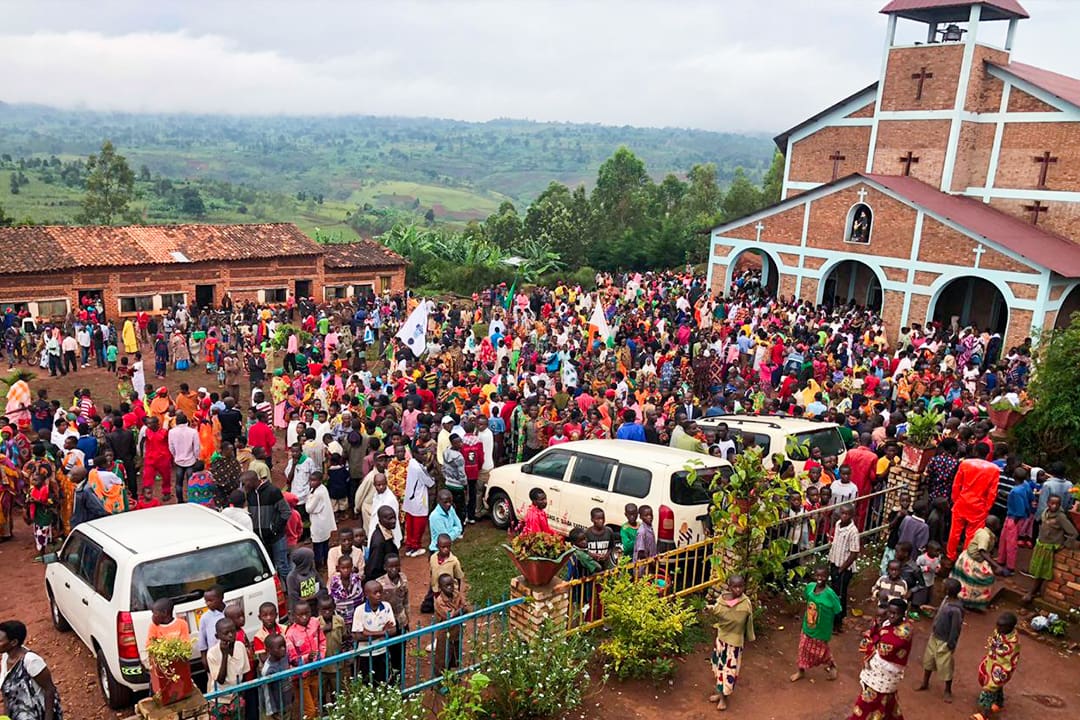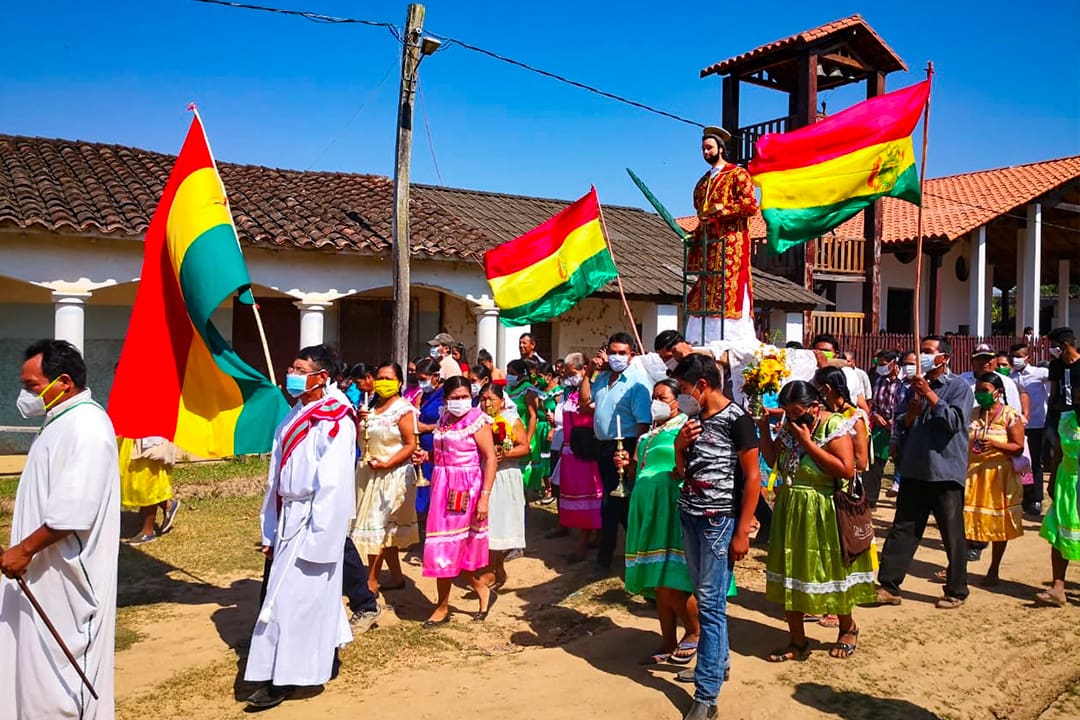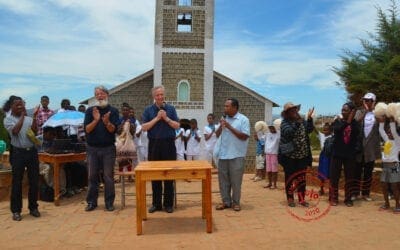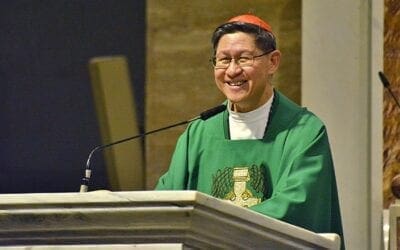Vincentian Missions
Missions Ad Gentes in the Church and in the Congregation
As we can read in the Vatican II decree, Ad Gentes, “The pilgrim Church is missionary by her very nature, since it is from the mission of the Son and the mission of the Holy Spirit that she draws her origin, in accordance with the decree of God the Father.” (AG, 2)
In the Gospel we find the missionary mandate, “From the beginning, the Lord Jesus called those he wanted to join him making twelve of them stay with him and sent them to preach.” (Mk 3:13; cf. Mt 10, 1-42)
For this reason “The mission of the Church, therefore, is fulfilled by that activity which makes her, obeying the command of Christ and influenced by the grace and love of the Holy Spirit, fully present to all men or nations, in order that, by the example of her life and by her preaching, by the sacraments and other means of grace, she may lead them to the faith, the freedom and the peace of Christ; that thus there may lie open before them a firm and free road to full participation in the mystery of Christ..” (AG, 5)
In Evangelii Gaudium, Pope Francis reminds us of very Vincentian thought: “If the whole Church takes up this missionary impulse, she has to go forth to everyone without exception. But to whom should she go first? When we read the Gospel we find a clear indication: not so much our friends and wealthy neighbors, but above all the poor and the sick, those who are usually despised and overlooked, “those who cannot repay you” (Lk 14:14). There can be no room for doubt or for explanations, which weaken so clear a message. Today and always, “the poor are the privileged recipients of the Gospel”, and the fact that it is freely preached to them is a sign of the kingdom that Jesus came to establish. We have to state, without mincing words, that there is an inseparable bond between our faith and the poor. May we never abandon them.” (EG, 48)
St. Vincent understood this very well. It was not by chance that he founded the Congregation of the Mission because he knew that “the reason for missionary activity derives from the will of God, who wants all people to be saved and to come to the knowledge of truth. In fact, there is only one God, and only one mediator between God and human persons, Jesus Christ, a man too, who gave himself as ransom for all” (Tm 2: 4-6), and “salvation does not exist in anyone else” (Acts 4:12).
Moreover, from Vincent’s own words emerge the beauty and joy of being missionaries: “to make God known to poor persons; to announce Jesus Christ to them; to tell them that the kingdom of heaven is at hand and that it’s for persons who are poor. Oh, what a great thing that is! But it goes beyond our understanding that we should be called to be associates and sharers in the plans of the Son of God. Quoi\ to become . . . I wouldn’t dare to say it … Be that as it may, it’s such a lofty ministry to evangelize poor persons, which is, par excellence, the work of the Son of God, and we’ve been included in it as instruments by which the Son of God continues to do from heaven what He did on earth. What great reason we have to praise God, my dear confreres, and to thank Him continually for this grace!” (CDC 12, 71-72).
The missionary spirit permeates the Congregation, which has incorporated the need to respond to this call into its Constitutions:
C 16. – Among the apostolic activities of the Congregation missions occupy a high place, both “ad Gentes” missions and popular missions where exist similar conditions for evangelization.
In founding new ecclesial communities, missionaries pay great attention to the “seeds of the Word” contained in the culture and religiosity of the various peoples (cf. EN 53).
The Missions that depend on the General Curia: International Missions
The International Missions were launched on the occasion of the 1992 General Assembly by the initiative of the then Superior General, Fr. Robert Maloney, with the unanimous consent of the General Council. From their beginning, they have been located in poor areas, where exist the minimum necessities, comforts and communication structures. Choosing these difficult and demanding places is linked to one of the objectives of the International Mission, which is to provide significant service to those in the margins in compliance with article 12 of our Constitutions, which lists the characteristics of the work of evangelization:
– clear preference for the apostolate among the poor;
– attention to today’s social reality,
– participation in the conditions of the poor,
– true sense of community in our apostolic works,
– willingness to go anywhere in the world,
– continuous search for conversions.
International Missions are an expression of the charisma and will of our founder:
“let’s ask God to give the Company this spirit, this heart, this heart that causes us to go everywhere, this heart of the Son of God, the heart of Our Lord, the heart of Our Lord…”. (CDC 12, 264)
To read the Mission Appeals click on the letters of the Superior General.
The Vincentian Missions that depend on the Province: Regions and Missions in other Countries
The Province, with the approval of the Superior General, or the Superior General can establish Regions that always maintain the characteristics of the Vincentian missions. A Region is entrusted to a Regional Superior (S 78 § 2). Regions can be established either in view of their own autonomy by becoming a Vice-Province or Province, or because the Vice-Province or Province can no longer maintain its autonomy (cf. S 78 § 6).
In order for a region to be erected into a vice-province or a vice-province into a province, it is necessary that the region or vice-province have the concrete possibility of having vocations and a sufficient economic base for the maintenance of the mission and of the confreres. (cf. S 78 § 7).
“We must expose life in order to bring the Gospel of Jesus Christ to the most distant countries where His Divine Providence calls us!”

ARE YOU A VINCENTIAN MISSIONARY?
Take off for the Mission!
1% of the confreres corresponds to 30 missionaries
ready to leave everything and go to the missions spread throughout the world.
If you sense the call in your heart, contact us!
Articles
The New Region of Cuba
In 1847, members of the Congregation of the Mission in Spain arrived in Cuba to accompany the...
The Vincentian Mission in Tunisia
The presence of the Congregation of the Mission in Tunisia in its current version dates from...
Getting to know the mission in Rwanda – Burundi directed by the Province of Colombia
Our presence in Rwanda is intimately linked to an historical fact: the genocide against the Tutsis...
Get to know the International Mission in Angola
The International Mission in Angola is a young mission, just six years and five months old … and...
Get to know the International Mission in Papua New Guinea
Papua New Guinea in the Eyes of the Beholder Welcome to the island in the Pacific, the land of...
Letter of Superior General – Mission Appeal Letter – 2020
Rome, 18 October 2020 Mission Sunday My dear confreres, May the grace and peace of Jesus be always...
Get to know the International Mission in Bolivia
On January 25, 2019, the current International Mission of Bolivia was founded out of the...
October: Missionary Month and Month of the 1% Campaign
We are beginning the month of October, the missionary month par excellence … a special time...
Visit of Cardinal Luis Antonio Tagle at the General Curia
He is considered one of the most representative voices of Asian theological thought. Luis Antonio...
